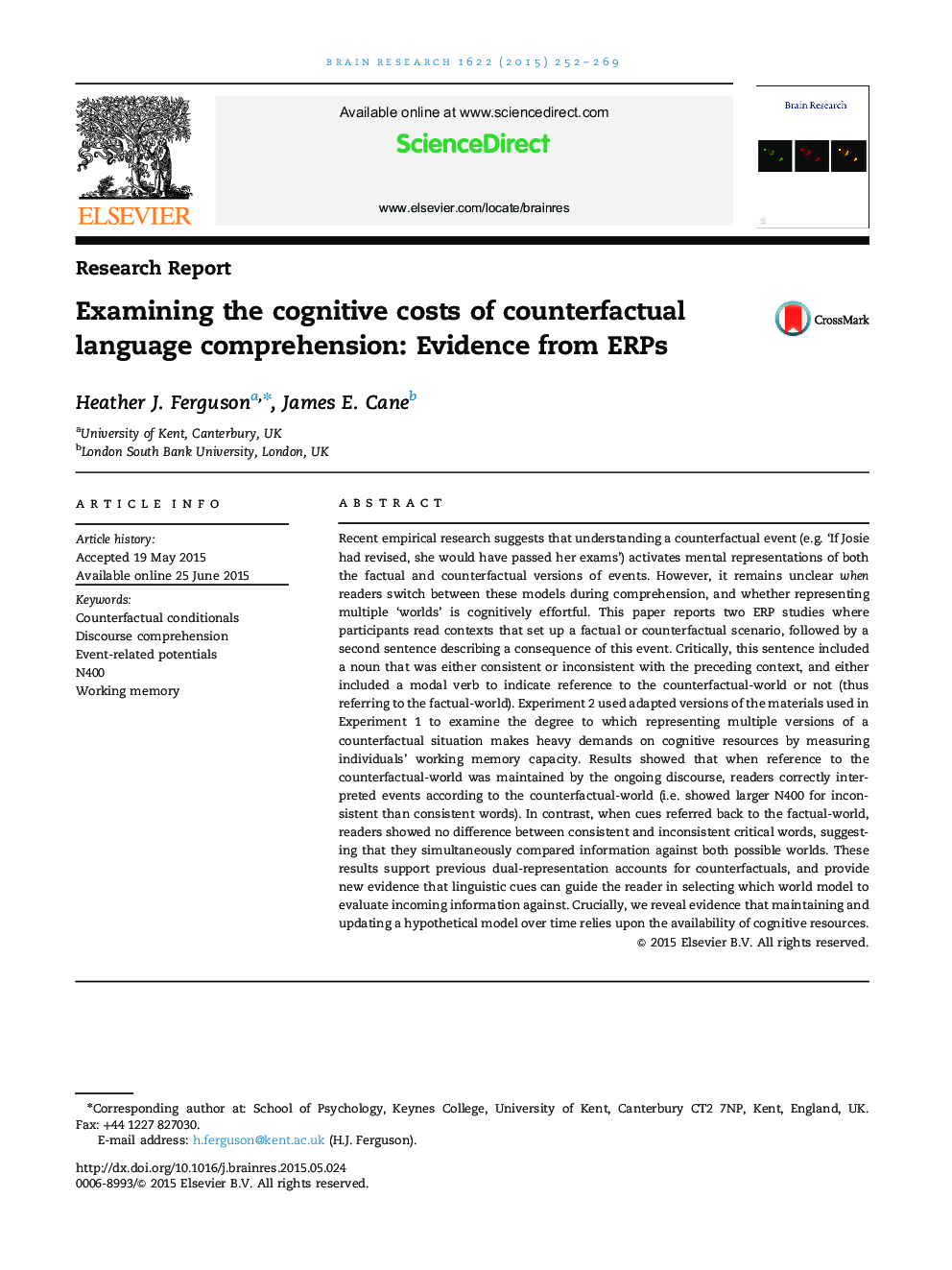| کد مقاله | کد نشریه | سال انتشار | مقاله انگلیسی | نسخه تمام متن |
|---|---|---|---|---|
| 6262944 | 1613817 | 2015 | 18 صفحه PDF | دانلود رایگان |

- We examine when readers switch between factual/counterfactual models of the world.
- We assess whether representing multiple 'worlds' is cognitively effortful.
- Rapid access to counterfactual world; delayed access to implied factual world.
- Linguistic cues guide selection of model to evaluate incoming information against.
- Maintaining and updating hypothetical model over time requires cognitive resources.
Recent empirical research suggests that understanding a counterfactual event (e.g. 'If Josie had revised, she would have passed her exams') activates mental representations of both the factual and counterfactual versions of events. However, it remains unclear when readers switch between these models during comprehension, and whether representing multiple 'worlds' is cognitively effortful. This paper reports two ERP studies where participants read contexts that set up a factual or counterfactual scenario, followed by a second sentence describing a consequence of this event. Critically, this sentence included a noun that was either consistent or inconsistent with the preceding context, and either included a modal verb to indicate reference to the counterfactual-world or not (thus referring to the factual-world). Experiment 2 used adapted versions of the materials used in Experiment 1 to examine the degree to which representing multiple versions of a counterfactual situation makes heavy demands on cognitive resources by measuring individuals' working memory capacity. Results showed that when reference to the counterfactual-world was maintained by the ongoing discourse, readers correctly interpreted events according to the counterfactual-world (i.e. showed larger N400 for inconsistent than consistent words). In contrast, when cues referred back to the factual-world, readers showed no difference between consistent and inconsistent critical words, suggesting that they simultaneously compared information against both possible worlds. These results support previous dual-representation accounts for counterfactuals, and provide new evidence that linguistic cues can guide the reader in selecting which world model to evaluate incoming information against. Crucially, we reveal evidence that maintaining and updating a hypothetical model over time relies upon the availability of cognitive resources.
Journal: Brain Research - Volume 1622, 5 October 2015, Pages 252-269